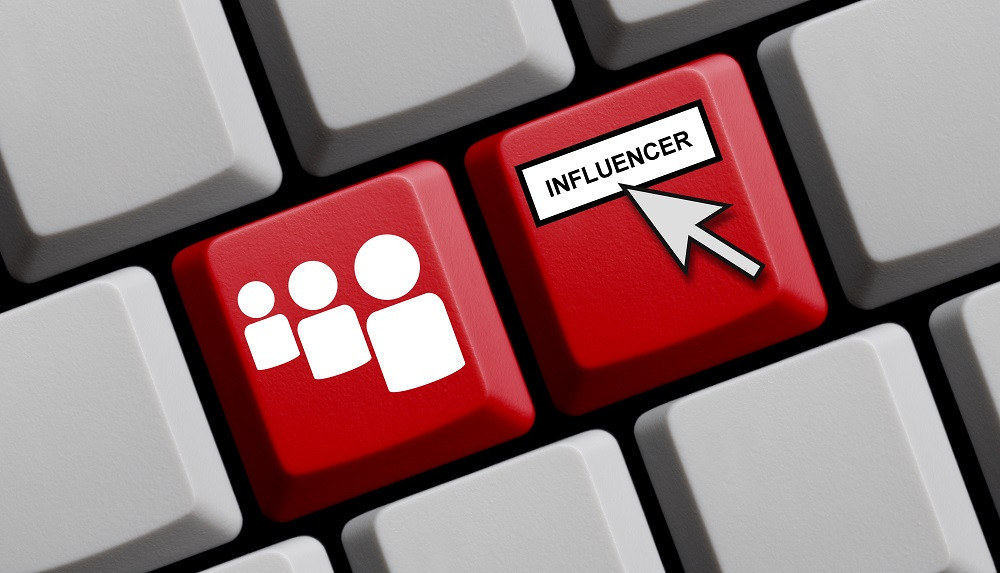Popular Reads
Top Results
Can't find what you're looking for?
View all search resultsPopular Reads
Top Results
Can't find what you're looking for?
View all search results'Unhealthy in a democracy': Concerns mount over govt using 'influencers' to promote policies
Antigraft and human rights activists have raised concerns over the government's use of social media "influencers" to promote its policies, demanding transparency over the partnership amid fears that it could be misused to sway public opinion on problematic issues.
Change text size
Gift Premium Articles
to Anyone
A
ntigraft and human rights activists have raised concerns over the government's use of social media "influencers" to promote its policies, demanding transparency over the partnership amid fears that it could be misused to sway public opinion on problematic issues.
Indonesia Corruption Watch (ICW) researcher Egi Primayogha said ministries and state institutions under President Joko "Jokowi" Widodo's administration often involved the so-called influencers for governmental purposes, including to promote programs and public policies.
The latest research by ICW -- conducted by compiling publicly available data -- found that the government had spent at least Rp 90.4 billion (US$6.1 million) on goods and services procurement containing the keywords "influencers" and "key opinion leaders" from 2017 until this year.
Read also: Jokowi administration spends Rp 90.4 billion on 'influencers': ICW
Although involving influencers to promote public policies was not wrong, Egi argued that the government appeared to make use of them with intention to cover up problems related to certain policies.
"The information conveyed by influencers is not always valid. Sometimes they even spread misinformation," Egi said in a discussion on Thursday.
"The influencers also often spoke beyond their capacity."
One notable case occurred in late February when the government announced it had allocated Rp 72 billion (US$5.2 million) to pay influencers to promote the country's tourism in an effort to shield the industry from the impact of the coronavirus pandemic, which at that time had yet to be detected in Indonesia.
The move was met with criticism, since at a time when countries around the world were scrambling to mitigate the virus, the Indonesian government seemed to downplay the threat of the pandemic and send out the message to welcome tourists from around the world instead.
Read also: ‘We can’t afford BTS’: Minister talks plan to hire foreign influencers to promote tourism
Last week, a number of influencers and internet personalities also came under fire for posting content supporting the controversial job creation bill using the hashtag #IndonesiaButuhKerja (Indonesia Needs Jobs). Some of them claimed they did not know that the campaign -- which was reportedly offered to them in return for payment -- actually championed the bill.
Many, including protesters against the bill, criticized the celebrities, accusing them of lacking knowledge about how the bill -- if passed -- could heavily affect workers' rights.
A leading expert at the Presidential Office (KSP), Donny Gahral Adian, denied that the campaign was an order from the government.
Egi of ICW went on to say that the use of influencers suggested that Jokowi was not confident in his own policies, adding that it could create a trend in which the government uses internet personalities to sway public opinion on controversial policies being deliberated.
"This is unhealthy in a democracy because it has the potential to blur the substantial points of certain policies," Egi said.
He urged the government to be more transparent with regard to the amount of state funds they spend on influencers and how they use it, adding that the government should also disclose how they determine which social media personalities to hire.
Read also: Indonesia wants civil servants with large social media followings to be 'government's influencers'
Indonesian Legal Aid Institute (YLBHI) chairwoman Asfinawati said influencers should also disclose paid partnerships with the government in the content they create and post to prevent possible public deception.
In response to the concerns, Donny of the KSP said hiring influencers to promote government policies was fair as long as they did not deceive the public.
Officials usually briefed the influencers on the substance of certain programs or policies beforehand, Donny said.
“These influencers have many followers and subscribers. If they are capable of public communication and understand the substance of the policy, I don’t see any problem,” Donny told The Jakarta Post, “Involving influencers in education and promotional programs is common, similar to public service announcements that use public figures.”
Donny explained that the Rp 90.4 billion was actually meant for general public relations activities, including public service announcements and education programs.
He also refuted allegations that Jokowi lacked confidence in his own policies, saying that by partnering with influencers, the government could, in fact, reach a broader audience.
“These influencers have social media platforms that have a lot of followers and [...] a broader reach, especially among millennials.”
Editor's note: This article has been updated with more statements from Donny.










